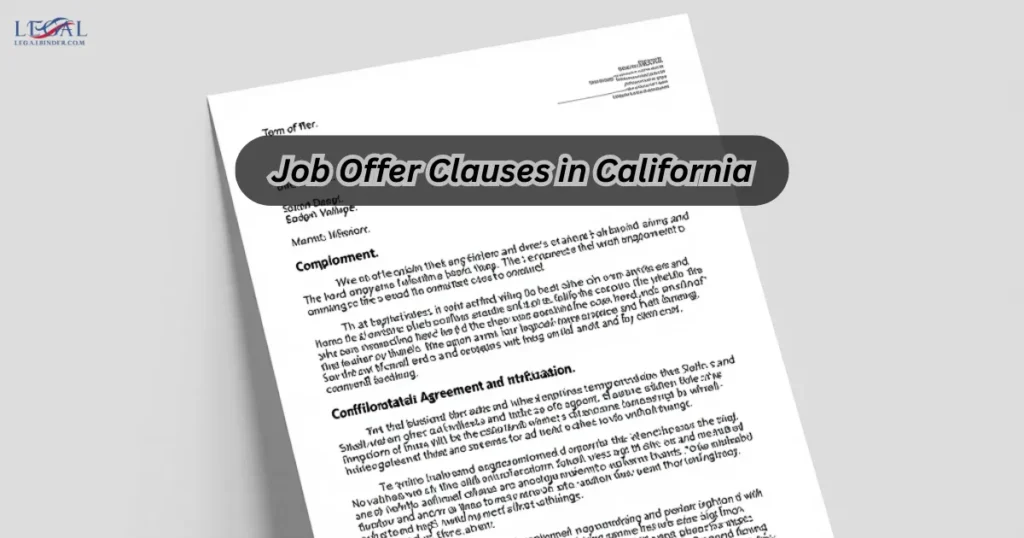Physical Address
304 North Cardinal St.
Dorchester Center, MA 02124
Physical Address
304 North Cardinal St.
Dorchester Center, MA 02124

Starting a new professional relationship is exciting. As an employer in California, one of the most powerful tools you have to build trust and clarity with your new hire is the Job Offer Clauses in California . The clauses you include in this document aren’t just formalities—they set the stage for expectations, compliance, and long-term satisfaction.

If you’ve ever wondered whether your offer letters are both legally compliant and welcoming, you’re not alone. Many employers in California face challenges balancing clear communication with compliance. That’s why knowing the Job Offer Clauses in California is critical. To help guide you, this article provides a step-by-step breakdown of the key elements you need to include. For official resources, you can review the California Department of Industrial Relations or the California Civil Rights Department. You can also return anytime to our homepage for more legal guides.
State the position, reporting manager, and a summary of job duties. This provides clarity and sets expectations from the start.
List health insurance, retirement plans, paid time off, and sick leave. California requires transparency around certain employee benefits.
In California, employment is generally at-will. Including this clause prevents confusion about termination rights.
Mention background checks, reference verifications, or drug screenings if applicable.
Protects sensitive company information from being shared outside the workplace.
Clearly outline the start date, primary work site, and any remote or hybrid arrangements.
Provide space for the candidate to sign, confirming agreement with the terms listed.

While not mandatory, job offer letters are highly recommended to ensure transparency and legal compliance.
Yes. Outlining benefits helps with compliance and avoids disputes. For guidance, see the DLSE guidelines.
It’s not legally required, but it’s highly recommended to avoid misunderstandings about termination rights.
Yes, if your company uses them. Always define duration and expectations clearly.
Absolutely. While the framework may remain the same, tailoring details shows respect for the specific role and candidate.

As an employer, the clauses you include in a job offer letter in California do more than fill space—they set the foundation for trust, compliance, and long-term success. By including the right details and avoiding common mistakes, you show professionalism and respect for your future team members.
Start today by reviewing your offer letters and aligning them with California requirements. For additional resources and templates, visit our homepage. The effort you put into clarity now will pay off with stronger relationships and a smoother hiring process.